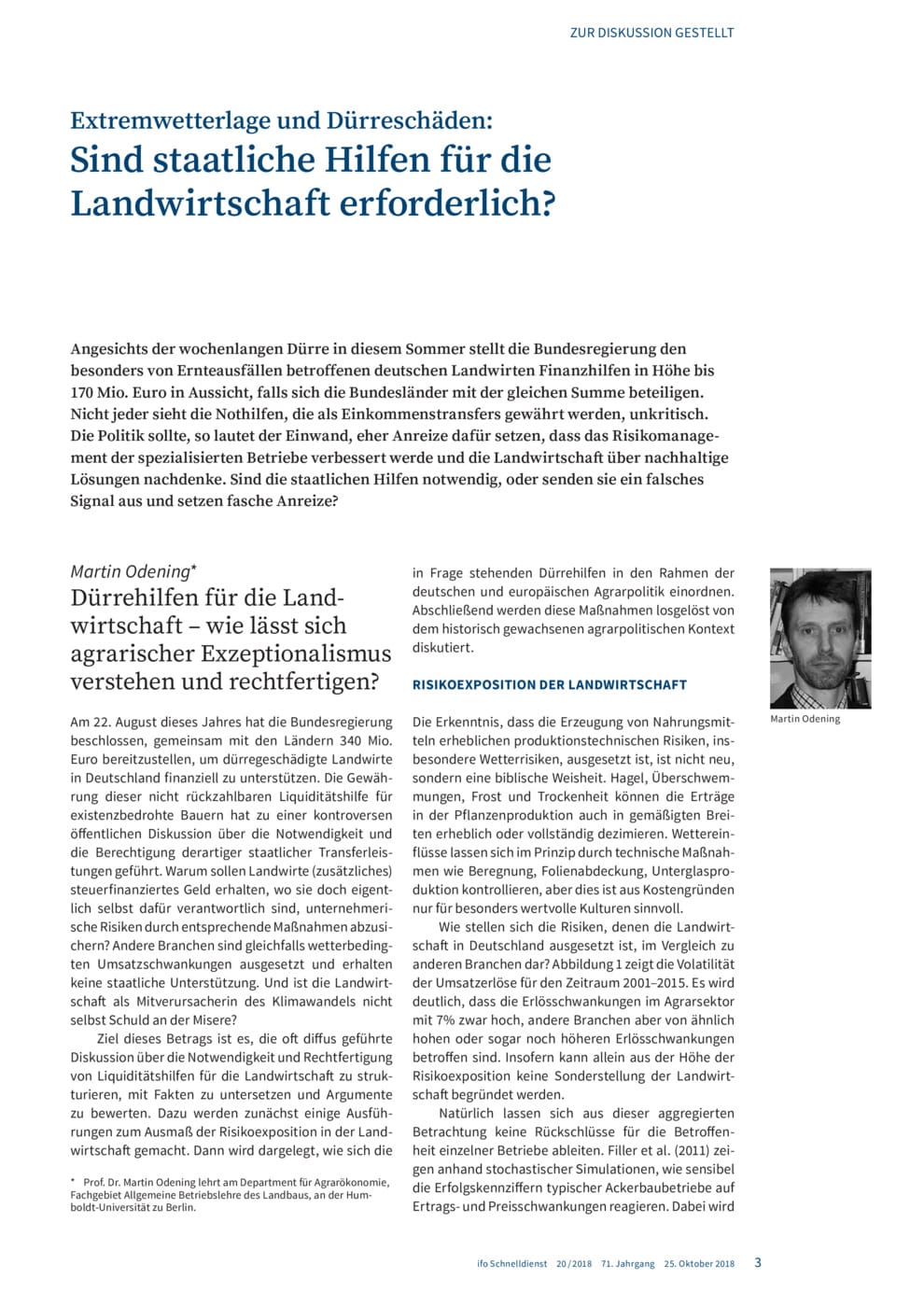Extreme Weather and Drought Damage: Do Farmers Need Government Aid?
ifo Institut, München, 2018
ifo Schnelldienst, 2018, 71, Nr. 20, 03-15

In view of the week-long droughts this summer, the German federal government has held out the prospect of financial assistance of up to EUR 170 million for Germany’s hardest hit farmers, if the German Länder contribute the same amount. There are, however, some critics of the emergency funds, which are seen as income transfers. Is state support necessary, or does it send out the wrong signal and create false incentives? According to Martin Odening, Humboldt University of Berlin, the drought funds have a positive effect in the short-term for the companies affected. But this does not mean that it makes economic sense and is necessary in the long term. It can be assumed that an entrepreneurially-oriented farm is in a position to manage fluctuations in turnover caused by the weather without state support by, for example, accumulating cash reserves or taking out special insurance policies. Carsten Croonenbroeck, University of Rostock, says weather fluctuations have always been part of farming. That is why farmers should make provisions and manage risk, which includes both building up reserves and taking out insurance for harvests. All agricultural subsidies, funding and drought relief, by contrast, constitutes an external intervention into the market with potentially distortionary effects. Rainer Kühl and Jörg Müller, University of Gießen, also believe that emergency funds create false incentives: companies that deployed risk management to support their risk-bearing capacity and at the expense of turning a profit did not receive any support. Instead, companies with structural deficits were helped. The drought shows the importance of adequate risk management that meets the needs of entrepreneurial responsibility and the challenges of climate change. Norbert Hirschauer, University of Halle-Wittenberg, Oliver Mußhoff, University of Göttingen, and Frank Offermann, Thünen-Institut Braunschweig, discuss the potential impact of ad hoc help, tax breaks and subsidising agricultural insurance policies for farms and how they are to be assessed from a corporate risk management point of view.